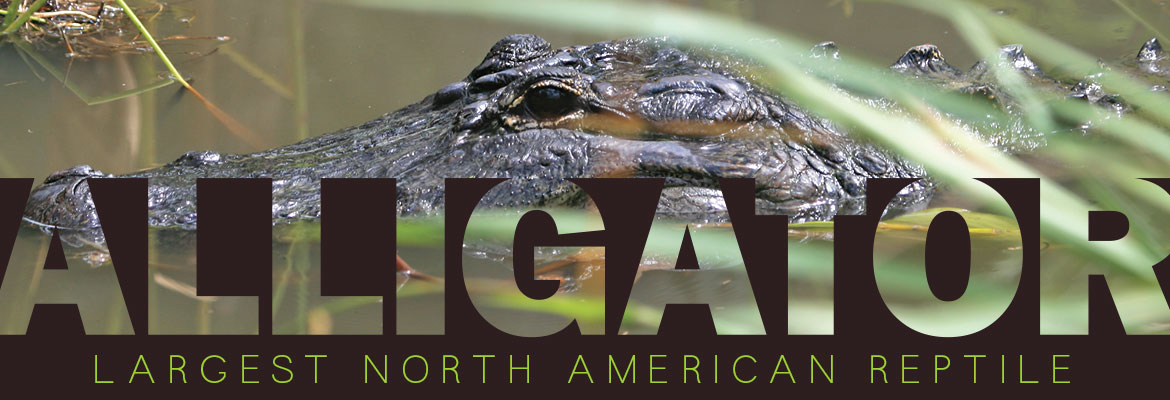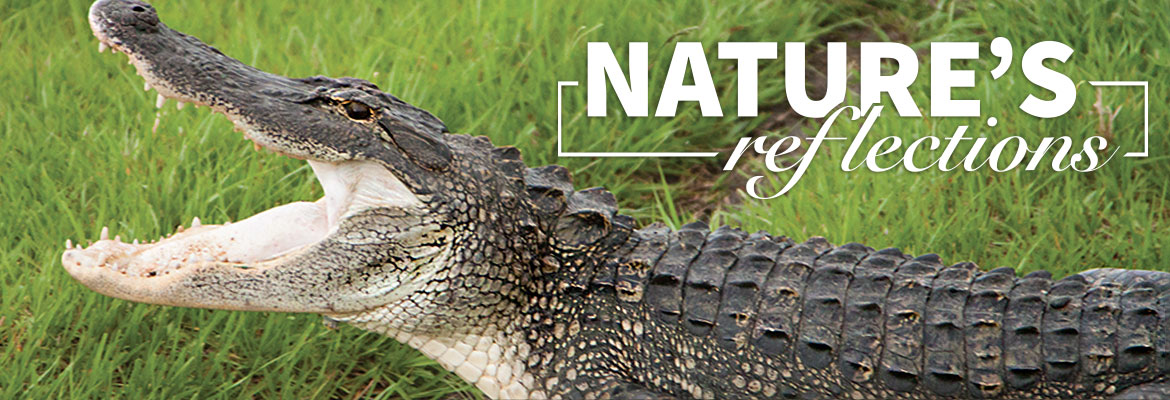Nature’s Reflections – Living with Alligators
Keep your distance and NEVER feed them
Florida’s official state reptile is the American Alligator (Alligator mississippensis). This largest North American reptile is a common site in Florida’s waterways. Our state is home to 1.3 million of them. People are intrigued by alligators, but they are dangerous creatures if someone attempts to handle or feed them. Feeding is not only illegal, it causes the gator to lose its fear of humans and associate people with food. Once this natural fear of humans is lost, it is an extremely dangerous threat. Development and loss of habitat result in more alligator encounters.
Adult males typically reach 13 to 14 feet. The Florida record is 14 ft. 3.5 in. and 1,043 lbs. Females reach just under 10 feet. The snout is characteristically broad. The number of teeth varies from 74 to 80, and are continually replaced if lost. Lifespan is 30 to 50 years.
Alligators begin to mate once they reach seven to eight feet in length. May is the peak of mating season. During June/July, the female builds a high mound of vegetation where she lays about 35 to 50 eggs, covers them with mud and vegetation and guards the nest. The mound keeps the eggs warm during the 65-day incubation. Hatchling sex is determined by nest temperature. Colder nests produce more females and warmer nests produce more males.

Alligators can be a threat to livestock and pets, but are also a Florida conservation success story. Thousands of eggs are harvested from the wild each year as part of a program that allows farmers to raise them in captivity for valuable hides and meat. Florida’s Alligator Management program allows annual hunt participation to keep numbers down. If you observe a nuisance alligator call: 1-866-FWC-GATOR (392-4286) for removal. Better understanding of these unique reptiles, plus keeping a safe distance allows humans and alligators to coexist in Florida.
Column & photos by Sandi Staton – sandi.staton@gmail.com
Read the full Nature’s Reflections article in the September 2017 SECO News here.






